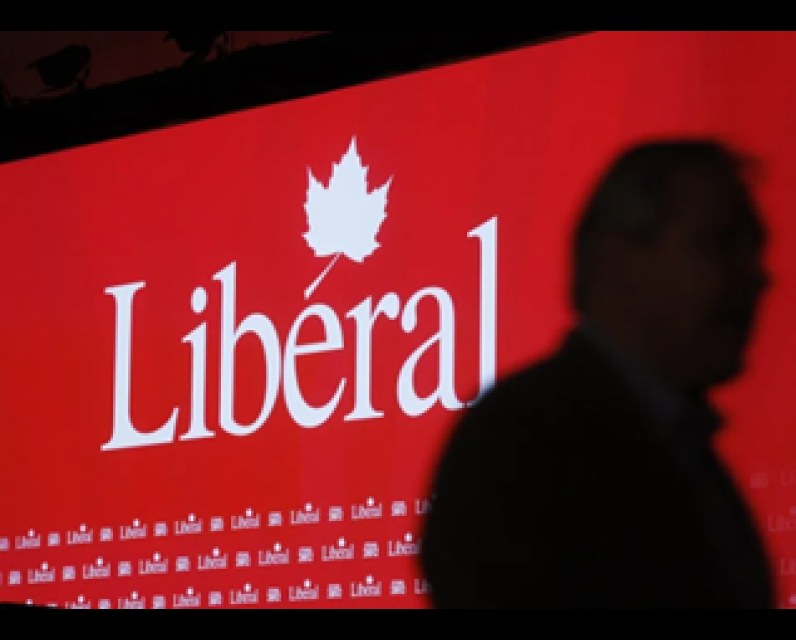Unpublished Opinions
Stefan Klietsch grew up in the Ottawa Valley outside the town of Renfrew. He later studied Political Science at the University of Ottawa, with a Minor in Religious Studies. He ran as a candidate for Member of Parliament for Renfrew-Nipissing-Pembroke three times from 2015 to 2021. He recently graduated with a Master of Arts in Political Science at the University of Carleton.
How Trudeau planted the seeds of his downfall in 2016

With the ongoing and persistent slump of Justin Trudeau’s Liberal Party in the polls, some observers have looked back at what caused the Sunny Ways team to lose its luster in their years of governing. Some would point to the Prime Minister’s harassment of Jody Wilson-Raybould in the SNC Lavalin scandal, an episode in which the Prime Minister clearly lost the battle for public opinion. One personal grievance of mine is the cynical promise that the Prime Minister had made of the 2015 election being the last such election under the existing electoral system. Others just point to post-pandemic economic conditions of high interest rates.
But looking back to the very beginning of the Trudeau era, the Liberal Leader arguably planted the seeds of his inevitable downfall quite quickly after winning his majority in the 2015 election. I speak here of the constitutional package that Trudeau pushed the Liberal Party of Canada to adopt at its 2016 Biannual General Meeting.
It is a recurring theme in Canadian politics that party leaders who form government tend to become more distant and isolated from their grassroots, such that they usually lose power after a decade in office. But whereas most Prime Ministers and Premiers would be content to delegate management of constitutional party debates to their submissive sycophants, a sitting Prime Minister took it upon himself to invest his personal brand in an appeal to the party’s convention floor to pass an omnibus “modernizing” constitutional package. Since the Prime Minister did not again participate in the party’s constitutional debates after 2016, he evidently got everything that he wanted all in one go, and with minimal resistance.
The Prime Minister’s cynicism here is worthy of mockery. Imagine thinking to yourself, “Just months ago, the rejuvenated grassroots institutions of the Liberal Party swept me to power and ended the decade of Liberal decline. Better fix what ain’t broke!” The gutting of the influence of Electoral District Associations and of policy conventions was obviously not intended as some grand exercise in democracy empowerment, but rather was intended to protect an incumbent government from any inconvenient messages and influences from a potentially unruly party grassroots.
Yet it was the same independent party grassroots that had helped bring Justin Trudeau to power in the first place. In the 2015 campaign the Liberals had run on what columnist Andrew Coyne called a “daring” platform, a platform crafted with more input and insight than can be offered by only pollsters and political operatives. The then Liberal platform was obviously a factor in the Liberals’ poaching of supporters from what had been an NDP lead in the polls. From cannabis legalization to electoral reform to the Canada Child Benefit, where did all the big new Liberal ideas come from? The party grassroots and institutions, of course.
My own participation in the Liberal Party of Canada has been fleetingly limited to attendance at its 2021 and 2023 General Meetings (and I currently no longer continue such participation). But I have experienced how much the party institutions are now wholly owned by the Prime Minister. Having voted in the 2021 policy convention against the Basic Income proposal that was regardless passed by the party plenary, I still took note when the Prime Minister later that year advocated against Basic Income policy without even feeling compelled to acknowledge the official policy of his own party.
The 2023 policy process was even more lacking in seriousness. The party cynically scheduled its policy debates at 7:30am on a Saturday morning, with the foreseeable result that barely 200 of the over 3000 registered delegates even bothered to show up. Only one Member of Parliament graced the proceedings with his presence. Almost all proposals were voted on with no debate, since the 50-member quorum for debate was clearly intended for a larger voting body. Plenary chairs casually admitted that almost 300 proposals had been officially received and not tabled for debate. And when an electoral reform policy was passed despite Trudeau’s preferences, the policy was casually hand-waived away by the Prime Minister after a one-day news cycle.
Pierre Poilievre’s Conservatives are arguably unscrupulous in their use of rage-farming tactics. But for all the ill that can be spoken of them, they do manage to sustain policy conventions that have at least some realness to them. A look at the CPAC recording of the 2023 Conservative policy convention suggests that there were many Conservative delegates present in the policy debates, at least enough to represent every province. Policy resolutions were consistently debated back-and-forth by attending delegates. A few young adults spoke publicly in plenary. Surely the federal Liberal Party could muster the same enthusiasm for its own policy debates, if only it could be bothered to even try?
Many trends in politics have many factors at play, and there is surely no shortage of political operatives who are skeptical that weakness of internal policy debates can alone account for the Liberal Party’s declines in popular standing. But interpreting weak policy conventions as broader signals of a party’s declining institutional strength is also useful in accounting for the struggles of the Ontario Liberal Party, which has been out of power almost as long as it has consistently failed to organize policy conventions at all.
Liberals and some other politicos are surely debating whether the Liberal Party’s best chances lie in Trudeau resigning from office and allowing a new Leader to take his place. The available evidence suggests that Trudeau resigning would not be enough to save their party, whether it is necessary. The Liberal Party probably needs to look once again like something of an actual democratic institution, rather than a mere appendage of one man, before Canadians will take the Liberals seriously enough to safeguard our democratic institutions again.



Comments
Interesting. For me it was his reneging on his promise of Electoral Reform when he couldn’t get his preferred choice of “Ranked Ballot” which isn’t appropriate for elections between political parties. Thats why most countries use some form of Proportional Representation. All in all it was a complete betrayal of the Canadian electorate.